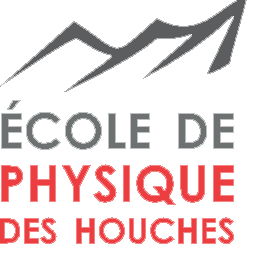Speaker
Description
Precise measurements of the fundamental properties of the proton such as its mass, lifetime, charge radius, and magnetic moment are important for our understanding of the physics of atomic and nuclear structure as well as for tests of fundamental symmetries. As one of very few particle-antiparticle pairs which are directly comparable, the proton and antiproton serve as an important laboratory for tests of charge parity time-reversal (CPT) symmetry and the weak equivalence principle.
Here we present our latest direct measurement of the proton magnetic moment with a relative precision of 3 $\times$ 10$^{-10}$ [1]. This improves our previous measurement by a factor of 11 [2] and is 33 times more precise than measurements based on MASERs. A comparison with our recent measurement of the antiproton magnetic moment [3] constitutes one of the most precise tests of the CPT symmetry in the baryon sector.
The advancement was achieved by application of an improved double Penning-trap technique. An optimized Penning-trap geometry with a more homogeneous magnetic field in the measurement trap and the application of a self-shielding coil allowed stabilization of magnetic field (cyclotron frequency) fluctuations by an order of magnitude. Together with a carefully optimized spin-flip drive this led to a significantly reduced line width of the g-factor resonance. An improved superconducting cyclotron resonator increased the cooling rate by a factor of 4, cutting measurement times in half and greatly increasing statistics.
These crucial developments, applied to this improved measurement of the proton magnetic moment, will be presented in this poster.
[1] Schneider, G. et al. Double-trap measurement of the proton magnetic moment at 0.3 parts per billion precision. Science 358, 1081 (2017)
[2] Mooser, A. et al. Direct high-precision measurement of the magnetic moment of the proton. Nature 509, 596 (2014)
[3] Smorra, C. et al. A parts-per-billion measurement of the antiproton magnetic moment. Nature 550, 371 (2017)




